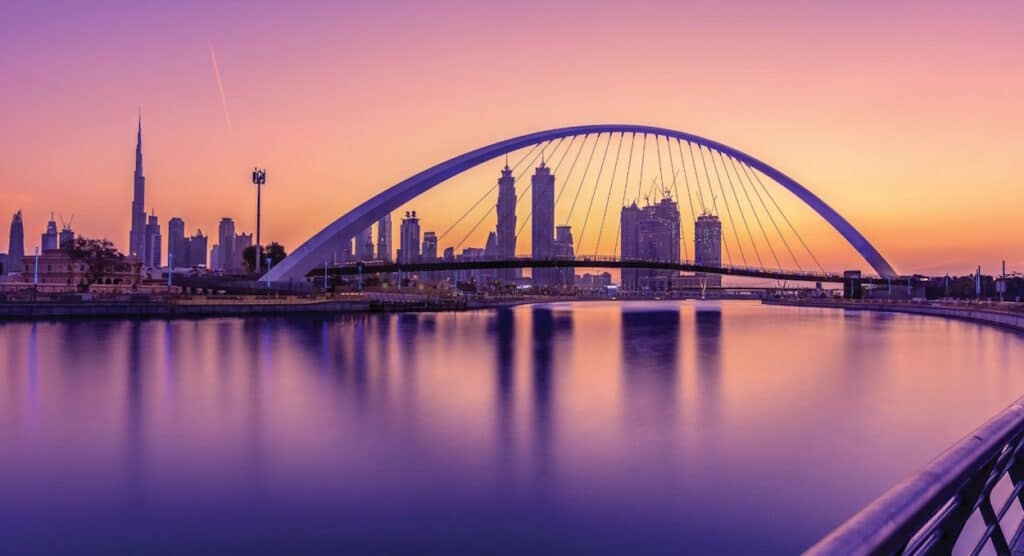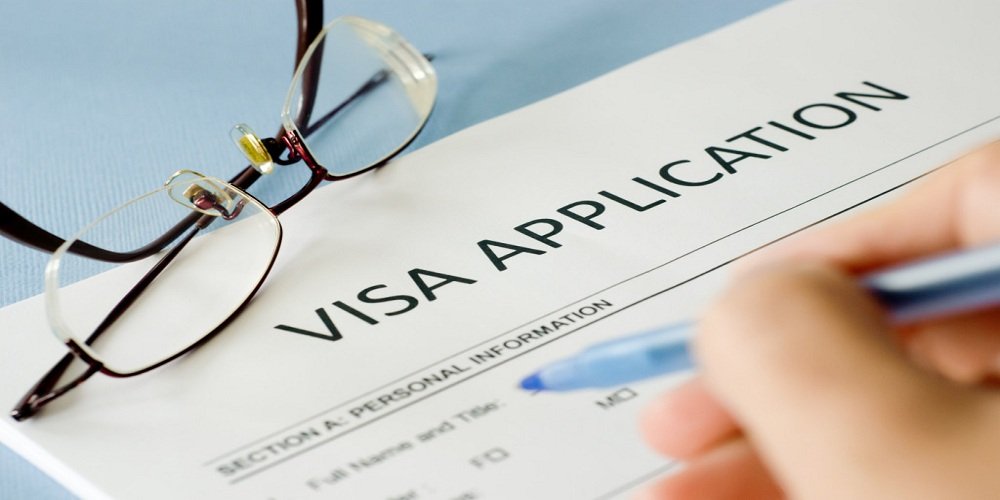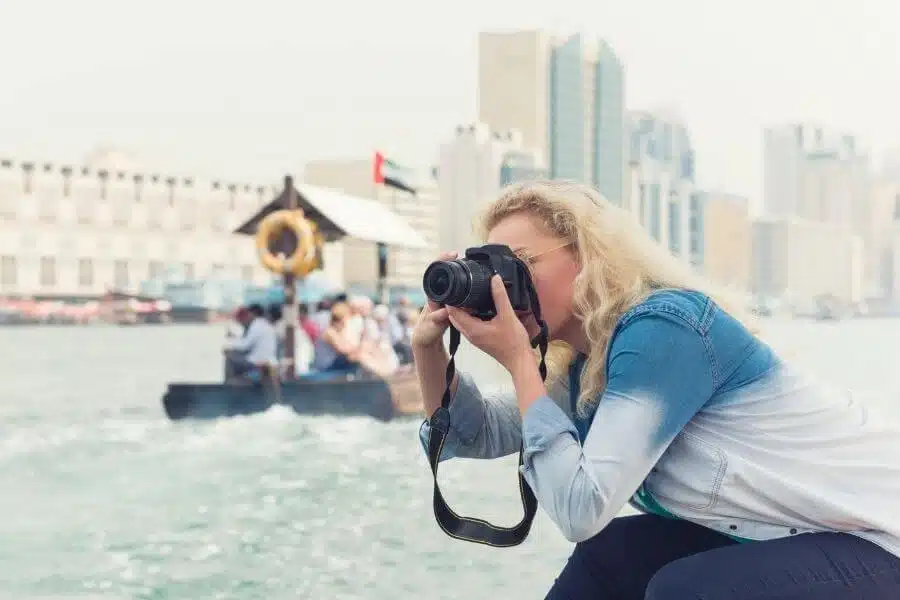
Dubai is a very welcoming place for tourists and residents as well. But everyone needs to remember that it is an Islamic country and has its own rules and regulations that must be respected. It is smart to understand the Dubai laws for tourists so read on.

I have lived in the country for 19 years and have always found the Emiratis to be incredibly welcoming and love to help and guide visitors and residents alike. Dubai is a very tolerant place and can seem very relaxed (almost like any major city around the world), but there are some key differences that you should be aware of.
This article will outline the key areas to help people ensure that they have a safe and enjoyable visit when moving here for a new job etc.
Note: This post does not constitute legal advice, but is a guideline. If you have an issue in Dubai then you should contact your embassy/consulate to get advice and help locate a lawyer that can help you. Please also see the Useful Links section for more resources that may help you.
Introduction
Dubai, a city of modern wonders and cultural richness, has become a global hotspot for tourists. While it offers a fantastic blend of tradition and innovation, it’s important to be aware of the local laws and regulations to ensure a trouble-free visit. In this comprehensive guide, we’ll explore the essential Dubai laws for tourists, ensuring you have a memorable and lawful experience in this vibrant emirate.
Understanding Dubai’s Legal System
The Sharia Law Influence
Dubai, one of the seven emirates in the United Arab Emirates (UAE), practices a legal system influenced by Islamic law, also known as Sharia law. While Sharia law plays a significant role in the legal framework, Dubai has established a set of laws and regulations that cater to its multicultural and diverse population, making it relatively tolerant compared to some other Middle Eastern destinations.
Tourism-Friendly Laws
Dubai’s legal framework is designed to encourage tourism, making it a welcoming destination for travellers from all over the world. It’s crucial, however, to strike a balance between enjoying your trip and respecting the local laws and customs. So read through this article to understand the Dubai laws for tourists.

Essential Travel Documents
Passport and Visa Requirements
Before embarking on your Dubai adventure, ensure your passport has at least six months’ validity from your arrival date. Additionally, you’ll typically need a visa to enter Dubai, except for citizens of certain countries who can enjoy visa-free travel for a specific period.

Tourist Visas and Visa Extensions
For most tourists, a 30-day tourist visa is issued upon arrival at the Dubai International Airport. If you plan to stay longer, you can extend your visa for an additional 30 days. For more information about visit visas please check out the Dubai Entry Requirements.
Code of Conduct and Cultural Respect
Dress Code
Dubai is known for its fashion-forward atmosphere, but it’s essential to dress modestly in public places. While you can wear Western-style clothing, revealing attire is not appropriate, especially in conservative areas.
Do not wear swimsuits in public places. You may be refused entry into certain areas such as malls etc if you are not wearing the appropriate clothing.
Public Behavior
Respectful and courteous behaviour is expected in Dubai. Avoid public displays of affection, offensive language, and any behaviour that might be considered disrespectful to the local culture. Swearing, cursing, or other insulting behaviour is not tolerated at all. It can lead to prison time, fines and eventual deportation. Follow the Dubai laws for tourists and stick to the guidelines.
Alcohol Regulations
Age Limit and Licensing
The legal drinking age in Dubai is 21. You’ll also need a license to consume alcohol, which is generally provided by hotels, clubs, and authorized stores. Drinking in public places is strictly prohibited.
Drinking in Public
Consuming alcohol in public, including beaches, streets, and parks, is against the law. Enjoy your drinks responsibly within licensed venues. Drunken behaviour and violence are not tolerated and will lead to fines, prison time and potentially deportation.
Drug Laws and Penalties
Strict Anti-Drug Policies
Dubai has a zero-tolerance policy for drug-related offences. Possession of even a small amount of illegal substances can lead to severe penalties, including imprisonment.
Medications and Prescriptions
Certain medications that are legal in other countries may be restricted in Dubai. It’s essential to carry prescriptions and necessary documentation for any medication you bring into the country.
Smoking Rules
Designated Smoking Areas
Smoking is allowed in designated areas, and violating this rule can result in fines. Ensure you only smoke in permitted zones.
Smoking in Private Residences
Smoking in your private residence is generally allowed, but it’s courteous to check with your host or accommodation provider about their smoking policy.
Photography and Filming
Respect for Privacy
While Dubai is a photogenic city, always ask for permission before taking pictures of people, especially women and government buildings. Respect people’s privacy and cultural sensitivities.

Restricted Areas
Avoid taking photos in restricted areas, such as military zones and government buildings. These actions can lead to legal consequences.
Public Displays of Affection
Moderate Behavior
Public displays of affection, including kissing and hugging, are discouraged in public places. Maintain a moderate level of intimacy when in public. Holding hands is fine, a kiss on the cheek etc, but no more.
Appropriate Locations
Save romantic gestures for more private settings, such as your hotel room or a restaurant.
Internet and Communication
Censorship and Content Filtering
Dubai has strict internet censorship rules, and certain websites and content may be blocked. It’s important to be aware of these restrictions, especially if you rely on specific online services.
VoIP Services
While VoIP services like Skype and WhatsApp are widely used, they may be restricted or monitored. Ensure you have alternative means of communication if needed. Tools like Zoom, Goto Meeting, Google Meeting are widely used.
Employment and Business Activities
Engaging in Work or Business
As a tourist, you cannot engage in work or business activities in Dubai without the appropriate permits and visas. Remote work may be subject to specific regulations.
Freelancing Rules
If you plan to freelance or offer services while in Dubai, consult with the relevant authorities to understand the legal requirements.
For more information about Business setup in Dubai.
Money Matters
Currency Exchange
Dubai’s currency is the United Arab Emirates Dirham (AED). Currency exchange services are widely available, and you can also use credit cards in most establishments.
Tipping Etiquette
Tipping is appreciated but not mandatory. It’s customary to leave a tip of around 10% in restaurants and for services.

Driving and Transportation
Driving License Requirements
To drive in Dubai, you need an international driving permit or a valid UAE driving license. Follow traffic rules and avoid speeding. If you are here as a tourist then you can use a valid driver’s licence from your home country. As soon as you have received a residence visa then you must apply for a UAE drivers licence.
The citizens of the following countries are allowed to exchange their drivers licence for a UAE licences subject to a fee and eye test. This list can change without notice so please check when applying.
| Countries | Countries | Countries |
|---|---|---|
| Estonia | Albania | Portugal |
| China | Hungary | Greece |
| Ukraine | Bulgaria | Slovak |
| Slovenia | Serbia | Cyprus |
| Latvia | Luxembourg | Lithuania |
| Malta | Iceland | Montenegro |
| United States of America | France | Japan |
| Belgium | Switzerland | Germany |
| Italy | Sweden | Ireland |
| Spain | Norway | New Zealand |
| Romania | Singapore | Hong Kong |
| Netherlands | Denmark | Austria |
| Finland | United Kingdom | Turkey |
| Canada | Poland | South Africa |
| Australia |
Traffic Rules
Dubai has strict traffic regulations, and violations can result in fines or even imprisonment. It’s crucial to obey the rules and drive safely. In Dubai, driving is on the right-hand side of the road, with steering wheels on the left. There are many speed cameras everywhere and it’s very easy to collect fines.
Safety and Health
Emergency Services
In case of emergencies, dial 999 for police, ambulance, or fire services. Dubai has a highly efficient emergency response system.
Healthcare System
Dubai boasts a world-class healthcare system with modern facilities. Ensure you have travel insurance to cover any unexpected medical expenses.
Conclusion
Dubai is a remarkable destination that offers a unique blend of tradition and modernity. To make the most of your trip while staying on the right side of the law, familiarize yourself with Dubai’s laws and regulations. Show respect for the local culture, and you’ll have a memorable and enjoyable stay in this dynamic emirate.
FAQ
Q1: Can tourists drink alcohol in Dubai?
Yes, tourists can drink alcohol in Dubai, but they must be at least 21 years old and obtain a license. Consumption in public places is prohibited.
Q2: What are the consequences of public intoxication?
Public intoxication can lead to fines, imprisonment, or deportation, depending on the severity of the offence. Dubai laws for tourists must be followed.
Q3: Are tourists allowed to wear swimsuits on public beaches?
Wearing swimsuits is generally acceptable on public beaches, but it’s advisable to cover up when leaving the beach area.
Q4: Can I take photos of people in Dubai?
Always ask for permission before photographing people, especially women, and avoid photographing sensitive areas and government buildings.
Q5: Is it safe to use public Wi-Fi for online banking?
Using public Wi-Fi for online banking is generally safe, but it’s advisable to use a VPN for added security.
Q6: What are the penalties for drug possession?
Dubai has strict anti-drug policies, and possession can lead to severe penalties, including imprisonment.
Q7: Can tourists work remotely while in Dubai?
Tourists cannot engage in work or business activities without the appropriate permits and visas. Remote work may be subject to specific regulations.
Q8: Are there any restrictions on public transportation?
Public transportation is generally safe and efficient. Follow the rules and etiquette when using public transport.
Q9: What is the emergency number in Dubai?
In case of emergencies, dial 999, 998, 997 for police, ambulance, or fire services respectively.
Q10: Can I use my home country’s prescription medication in Dubai?
Certain medications that are legal in other countries may be restricted in Dubai. Carry prescriptions and necessary documentation for any medication you bring into the country.
Useful Link
- The official Dubai government portal for laws.
- A list of lawyers in Dubai is shown here that will help you with the Dubai laws for tourists.
- Some guides to Dubai can be found here and here.
- Interested in Dubai business in Dubai?
- Check out the Dubai International Financial Centre which has its own
- Time for fun. Check out the best beaches in Dubai.
- The best resorts in Dubai.
- Great shopping destinations include Dubai Mall, Mall of the Emirates and Dubai Hills Mall.
- This is a great Dubai Travel Itinerary for different time periods visiting Dubai.
Key Takeaways
- Dubai has a legal system influenced by Sharia law but also has tourism-friendly regulations.
- Respect local customs, dress modestly, and avoid public displays of affection.
- Follow alcohol regulations, including obtaining a license and not drinking in public.
- Be cautious with photography and be aware of internet censorship.
- Understand driving and traffic rules, and have travel insurance for healthcare needs.






